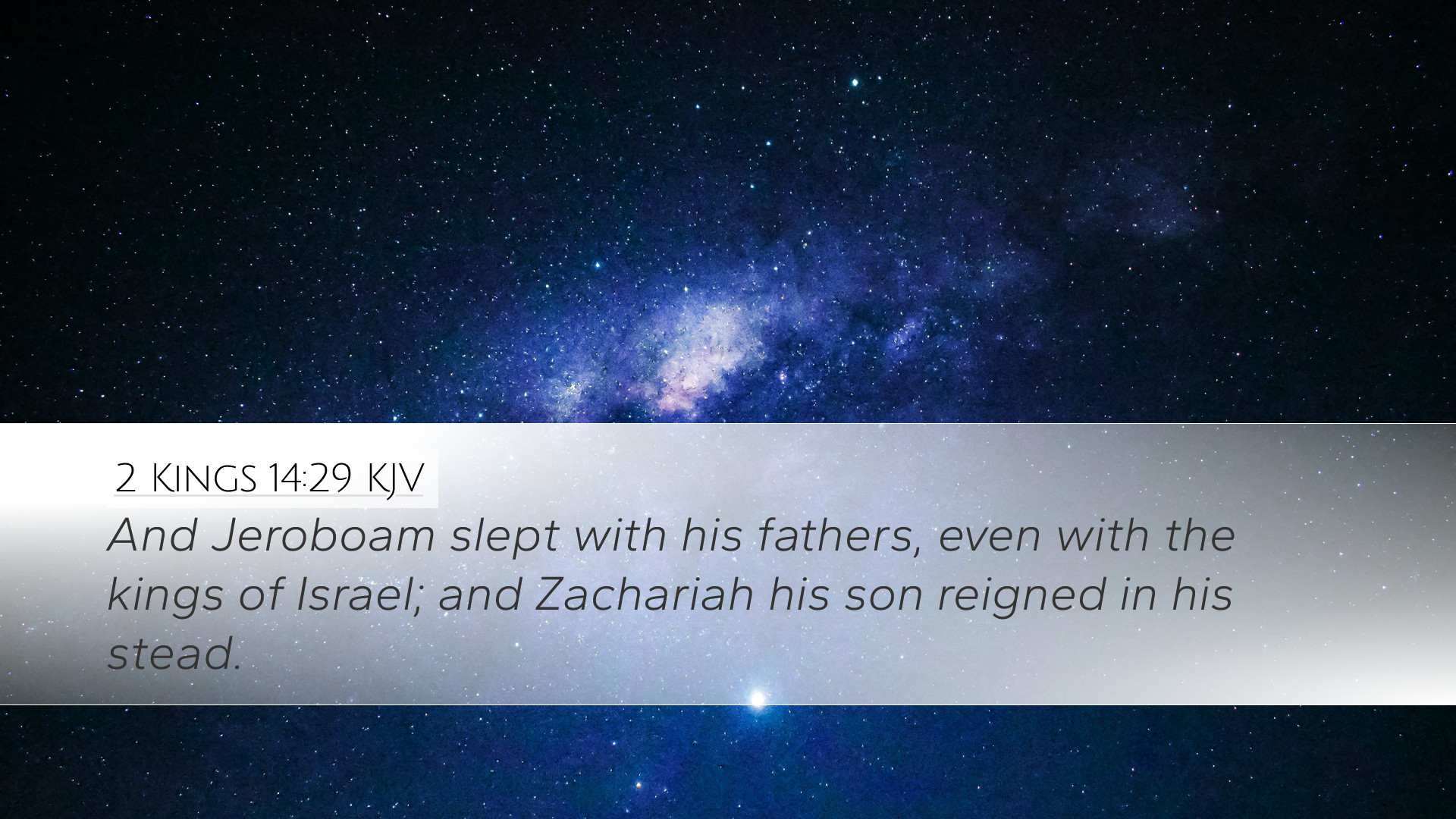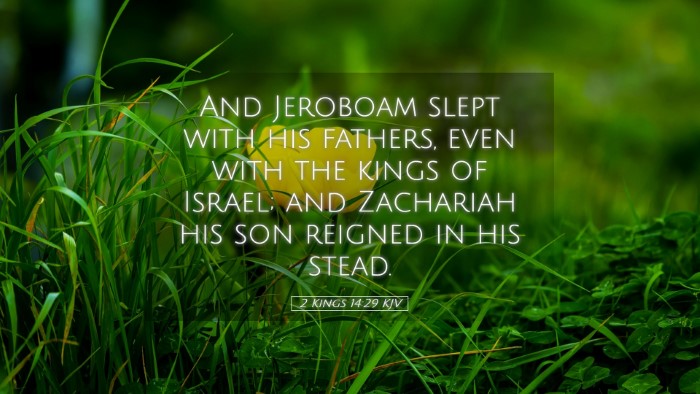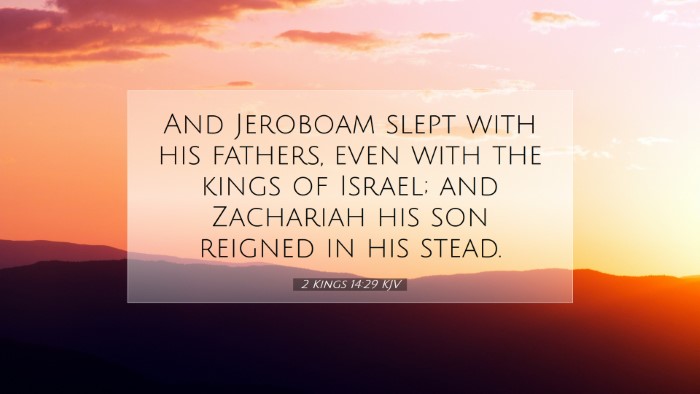2 Kings 14:29 - Commentary
This verse concludes a significant chapter in the history of Israel, marking the end of the reign of Jeroboam II and bringing to light the complexities of the Israelite monarchy during this period. The verse states:
"And Jeroboam slept with his fathers, and they buried him in Samaria; and Zachariah his son reigned in his stead." - 2 Kings 14:29
Exegesis and Contextual Analysis
The historical context of 2 Kings 14 features the reign of Jeroboam II who presided over a time of expansion and prosperity for Israel. This prosperity, however, was juxtaposed with socio-political instability and moral decay. The chapter grants a glimpse into the reign marked by both divine favor and the imperfections of human governance.
The Meaning of "Slept with His Fathers"
This phrase signifies death and is a common biblical expression indicating a peaceful transition from life, often reflecting a lineage of leaders. In the case of Jeroboam II, this phrase also hints at the continuity of a dynasty established in the northern kingdom.
Matthew Henry emphasizes that the phrase does not only point out the death of Jeroboam II, but reflects on the legacy left behind:
"His death and burial in Samaria signify both the end of his influence and the foundation for his successor." - Matthew Henry
Burial Practices and Significance
The burial in Samaria, the capital of the northern kingdom, indicates the significance of locale in leadership and governance. Albert Barnes provides insight into Jewish customs related to burial, stating:
"The burial of kings in the city of their reign is reflective of not just honor but the people's connection to their rulers." - Albert Barnes
This notion posits that the burial site serves as a historical testament to the reign's impact, both positively and negatively, on the nation of Israel.
Jeroboam II's Legacy
Exploring Jeroboam II's reign, Adam Clarke highlights the dichotomy of prosperity and idolatry:
"While he restored the borders of Israel, the moral state of the kingdom continued to deteriorate, reflecting the eternal struggle between faithfulness to God and societal pressures." - Adam Clarke
This commentary stresses the moral implications of Jeroboam's leadership, suggesting that the economic and territorial gains were overshadowed by the spiritual decline evident in idolatrous practices.
The Transition of Power
Jeroboam II’s death leads to the rise of his son, Zachariah, marking a pivotal point in the continuing narrative of Israel's kingship. The transition of power is a recurring theme, illuminating the generational shifts in governance and the accompanying permanence of sin within the leadership.
Additionally, Matthew Henry notes that such transitions can often be a source of anxiety for the people:
"In many cases, the coming of a new ruler brings uncertainty, especially if the reigning house is known for its shortcomings." - Matthew Henry
Theological Reflections
This brief verse encapsulates the theological themes of mortality, legacy, and divine retribution. Each king's reign is a testimony to their alignment with God’s covenant. The downfall of Jeroboam II may be viewed as a divine response to idolatry and injustice, strongly echoed in the prophetic warnings that characterized the preceding chapters.
The Cycle of Kingship in Israel
The narrative structure of 2 Kings presents a cyclical pattern; prosperity leads to pride, resulting in spiritual decline, triggering divine judgment:
- Prosperity - Jeroboam II restored territorial integrity (2 Kings 14:25).
- Pride and Idolatry - Engaged in worship that strayed from Yahweh.
- Judgment - Forewarnings from prophets indicate consequences.
Application to Current Leadership
This verse calls contemporary leaders, including pastors and theologians, to deliberate reflection on their values and actions. National and spiritual authorities are challenged to ensure that prosperity does not overshadow spiritual responsibilities:
"Earthly gains without divine alignment can lead to downfall; integrity must govern all forms of leadership." - Adam Clarke
Thus, this text invites a continual examination of how leaders navigate the complexities of power while maintaining fidelity to God’s mandates.
Conclusion
In summation, 2 Kings 14:29 serves as a poignant reminder of the transient nature of earthly authority contrasted with the enduring sovereignty of God. The death of Jeroboam II and the ascension of Zachariah exemplify the inevitability of change in leadership coupled with a challenge for integrity and faithfulness. The reflections drawn from noted commentaries help shape a deeper understanding for pastors, students, and scholars as they seek to apply these lessons in their respective contexts.


